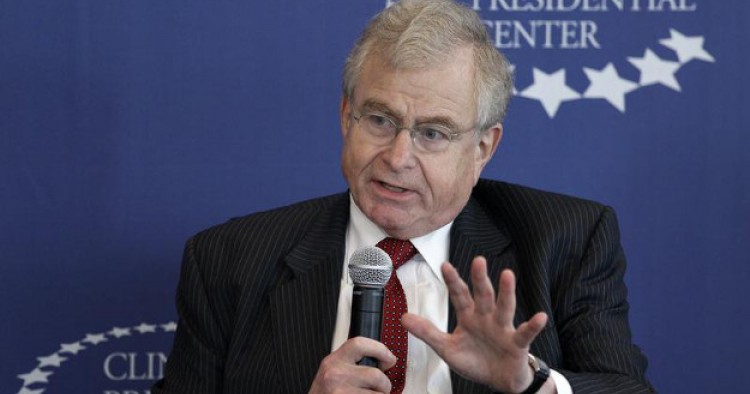The Middle East Institute (MEI) is saddened to learn of the passing of Sandy Berger, who died today at age 70. Berger was among the nation's most distinguished public servants, serving as National Security Advisor to President Clinton from 1997-2001. He was also a member of MEI's International Advisory Committee.
Berger was a key player within the Clinton administration at a crucial time in American foreign policy in the Middle East. As National Security Advisor, and prior to that as Deputy National Security Advisor, he furthered the administration's pursuit of peace between Israel and the Arab states. He also increased the nation's policy focus on the threat posed by international terrorism, including al-Qa'ida. He contributed to implementing key post-Desert Storm measures to contain the regime of Saddam Hussein, and engaged in vigorous diplomacy to secure the cooperation of other, mostly reluctant states in imposing sanctions against Iran for acting as a state sponsor of terrorism.
In addition to his service to MEI as a member of its International Advisory Committee, he served on the International Advisory Council of the Brookings Doha Center, the International Crisis Group Board of Trustees, the Board of Directors of the World Food Program U.S., as chairman of the Advisory Board of the National Security Network, and as co-chair of the Senior Working Group on the Middle East at the United States Institute of Peace.
"Sandy's contributions to regional security, counterterrorism, and the search for Israeli-Palestinian peace placed him among the ranks of the United States' finest public servants," said Richard A. Clarke, chairman of MEI's Board of Governors. "The impact of his mentorship on a generation of American national security professionals will be an enduring legacy of his leadership."
The Middle East Institute (MEI) is an independent, non-partisan, non-for-profit, educational organization. It does not engage in advocacy and its scholars’ opinions are their own. MEI welcomes financial donations, but retains sole editorial control over its work and its publications reflect only the authors’ views. For a listing of MEI donors, please click here.













